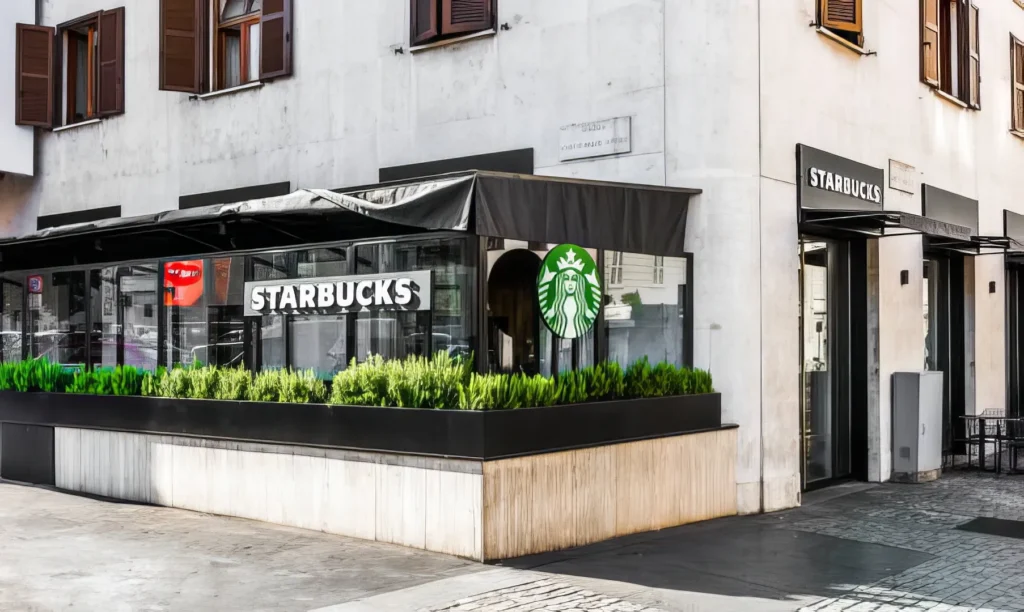Introduction to Soy Milk
Soy milk is a plant-based alternative to dairy milk that has been consumed for centuries in Asia. It is made by soaking and grinding soybeans, then boiling the mixture and straining out the solids. Soy milk has become increasingly popular in recent years due to its health benefits and as a dairy-free option for those with lactose intolerance or dairy allergies.

Soy milk was first introduced to the United States in the early 1900s as a health food. It gained popularity in the 1970s as a vegetarian and vegan alternative to dairy milk. Today, soy milk can be found in most grocery stores and is often used as an ingredient in many food products.
Soy milk is a good source of protein, vitamins, and minerals. It is also low in saturated fat and cholesterol-free, making it a healthy choice for those looking to reduce their intake of animal products.
Starbucks’ Use of Soy Milk
Starbucks began offering soy milk as an alternative to dairy milk in 1997. The decision was made in response to customer demand for non-dairy options. Today, Starbucks offers soy milk at all of its locations worldwide.
The brand of soy milk used by Starbucks is Silk, which is owned by Danone North America. Silk soy milk is made from non-GMO soybeans and is fortified with vitamins and minerals.
Soy milk is available at Starbucks for no additional charge and can be used in any beverage that calls for dairy milk, including lattes, cappuccinos, and Frappuccinos.
Benefits of Soy Milk
Soy milk has many nutritional benefits. It is high in protein, calcium, iron, and vitamin D. It also contains antioxidants that can help reduce inflammation and lower the risk of chronic diseases such as heart disease and cancer.
Soy milk is also a good source of phytoestrogens, which are plant compounds that mimic the effects of estrogen in the body. This can be beneficial for women going through menopause, as it can help alleviate symptoms such as hot flashes and night sweats.
For those with lactose intolerance or dairy allergies, soy milk is a great alternative to dairy milk. It is also vegan-friendly and can be used in cooking and baking as a substitute for dairy milk.
Nutritional Information
When compared to dairy milk, soy milk is lower in calories, fat, and cholesterol. It is also higher in protein and fiber. One cup of Silk soy milk contains 100 calories, 4 grams of fat, 8 grams of protein, and 45% of the daily recommended intake of calcium.
Starbucks’ soy milk is also fortified with vitamins and minerals. One cup of Starbucks’ soy milk contains 130 calories, 4 grams of fat, 8 grams of protein, and 30% of the daily recommended intake of calcium.
Taste Comparison
The taste of soy milk is often described as nutty or earthy. Some people find it to be sweeter than dairy milk, while others find it to be less creamy. The taste can vary depending on the brand and how it is prepared.
When compared to dairy milk, soy milk has a different taste profile. Dairy milk has a creamy texture and a slightly sweet taste. Soy milk has a thinner texture and a nuttier flavor.
Starbucks’ soy milk has been specifically formulated to work well in coffee beverages. It has a slightly sweet taste that complements the flavor of coffee without overpowering it.
Environmental Impact
The production of soy milk has a lower environmental impact than the production of dairy milk. Soybeans require less water and land to grow than cows do to produce milk. They also produce fewer greenhouse gas emissions.
Starbucks is committed to sustainability and has set goals to reduce its environmental impact. The company has pledged to reduce its carbon footprint, conserve water, and reduce waste. By offering soy milk as an alternative to dairy milk, Starbucks is helping to reduce the environmental impact of its operations.
Conclusion
Soy milk is a healthy and sustainable alternative to dairy milk. It is high in protein, vitamins, and minerals, and is a great option for those with lactose intolerance or dairy allergies. Starbucks’ use of soy milk as an alternative to dairy milk is a positive choice for both customers and the environment. By offering soy milk at all of its locations worldwide, Starbucks is helping to reduce the environmental impact of its operations while providing customers with a healthy and delicious option.
